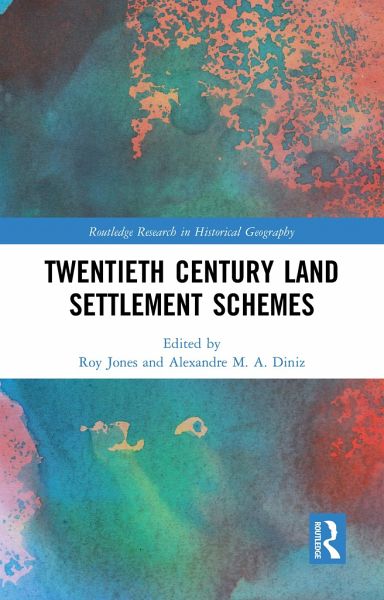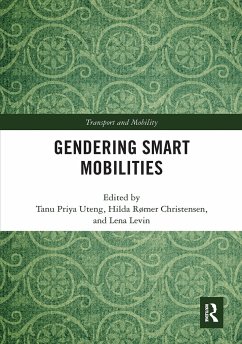
Twentieth Century Land Settlement Schemes
Versandkostenfrei!
Versandfertig in 6-10 Tagen
45,99 €
inkl. MwSt.
Weitere Ausgaben:

PAYBACK Punkte
23 °P sammeln!
Land settlement schemes, sponsored by national governments and businesses, such as the Ford Corporation and the Hudson's Bay Company, took place in locations as diverse as the Canadian Prairies, the Dutch polders, and the Amazonian rainforests. This novel contribution evaluates a diverse range of these initiatives.By 1900, any land that remained available for agricultural settlement was often far from the settlers' homes and located in challenging physical environments. Over the course of the twentieth century, governments, corporations and frequently desperate individuals sought out new place...
Land settlement schemes, sponsored by national governments and businesses, such as the Ford Corporation and the Hudson's Bay Company, took place in locations as diverse as the Canadian Prairies, the Dutch polders, and the Amazonian rainforests. This novel contribution evaluates a diverse range of these initiatives.
By 1900, any land that remained available for agricultural settlement was often far from the settlers' homes and located in challenging physical environments. Over the course of the twentieth century, governments, corporations and frequently desperate individuals sought out new places to settle across the globe from Alberta to Papua New Guinea. This book offers vivid reports of the difficulties faced by many of these settlers, including the experiences of East European Jewish refugees, New Zealand soldier settlers and urban families from Yorkshire.
This book considers how and why these settlement schemes succeeded, found other pathways to sustainability or succumbed to failure and even oblivion. In doing so, the book indicates pathways for the achievement of more economically, socially and environmentally sustainable forms of human settlement in marginal areas. This engaging collection will be of interest to individuals in the fields of historical geography, environmental history and development studies.
By 1900, any land that remained available for agricultural settlement was often far from the settlers' homes and located in challenging physical environments. Over the course of the twentieth century, governments, corporations and frequently desperate individuals sought out new places to settle across the globe from Alberta to Papua New Guinea. This book offers vivid reports of the difficulties faced by many of these settlers, including the experiences of East European Jewish refugees, New Zealand soldier settlers and urban families from Yorkshire.
This book considers how and why these settlement schemes succeeded, found other pathways to sustainability or succumbed to failure and even oblivion. In doing so, the book indicates pathways for the achievement of more economically, socially and environmentally sustainable forms of human settlement in marginal areas. This engaging collection will be of interest to individuals in the fields of historical geography, environmental history and development studies.














